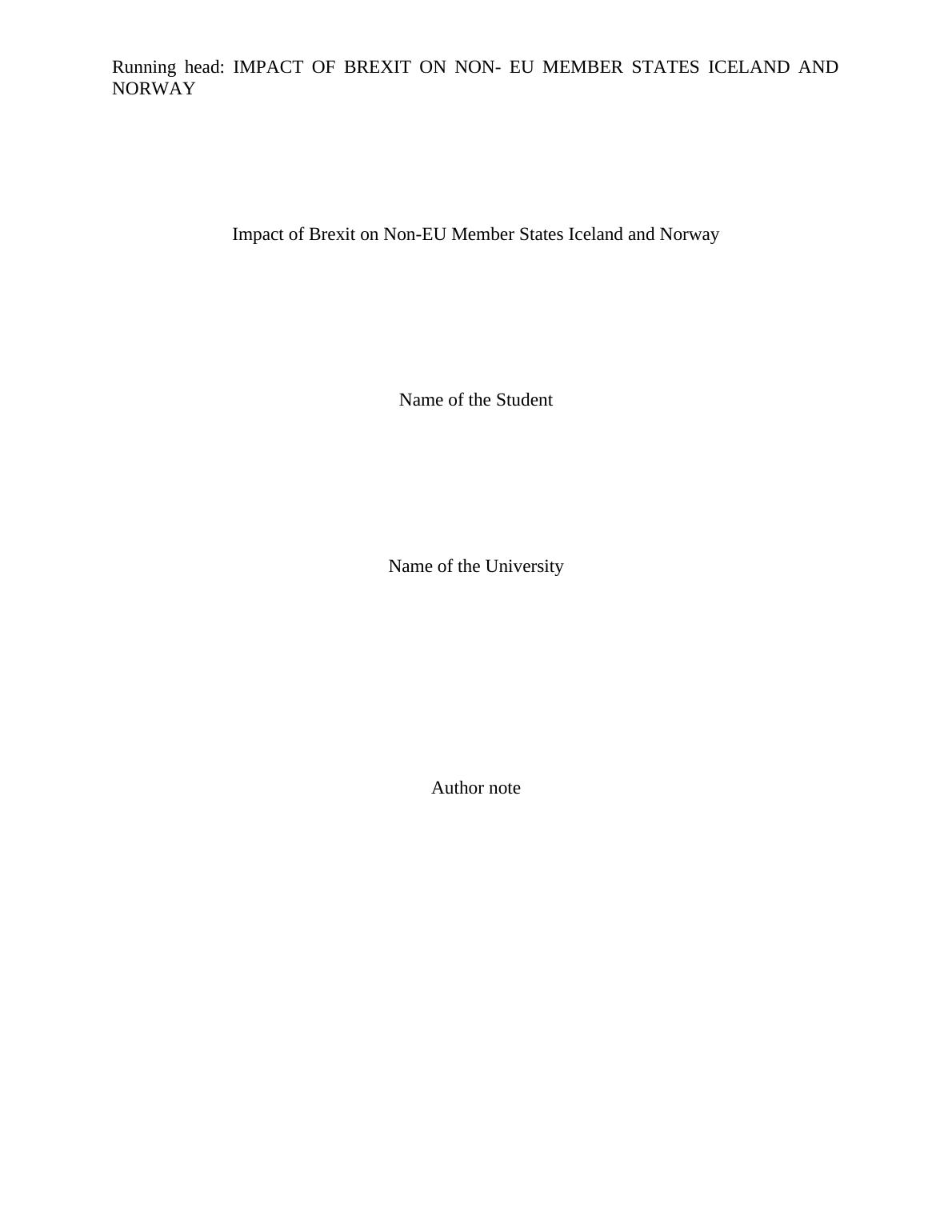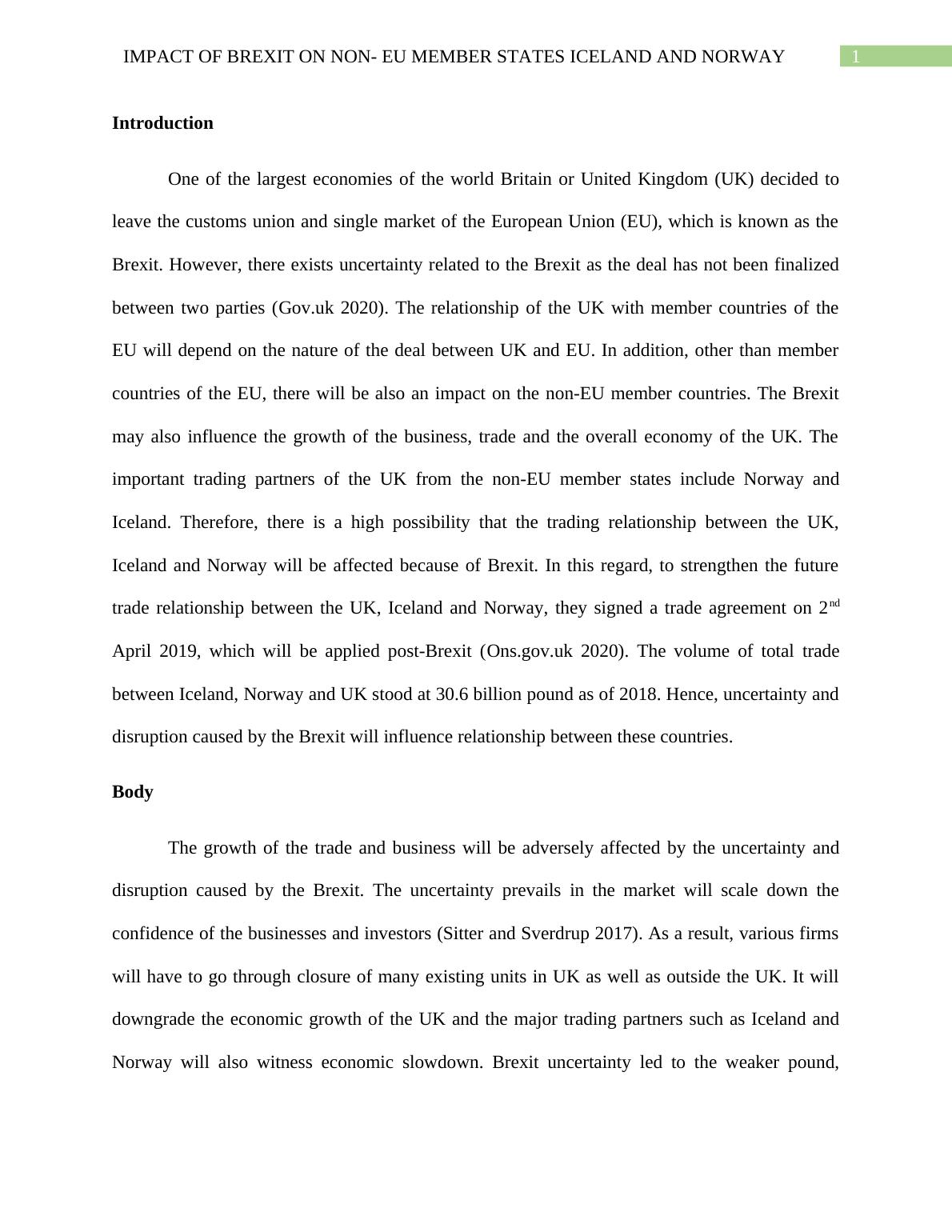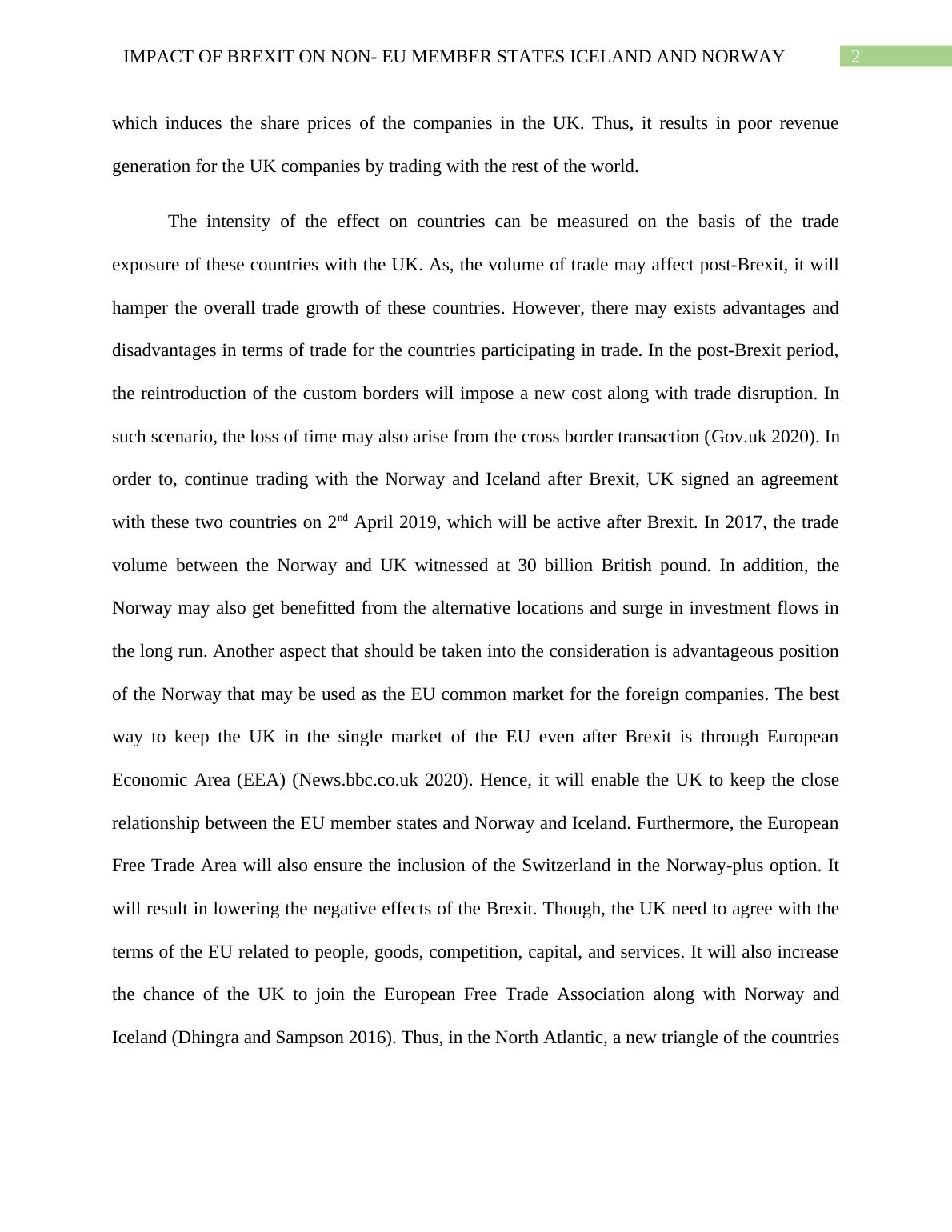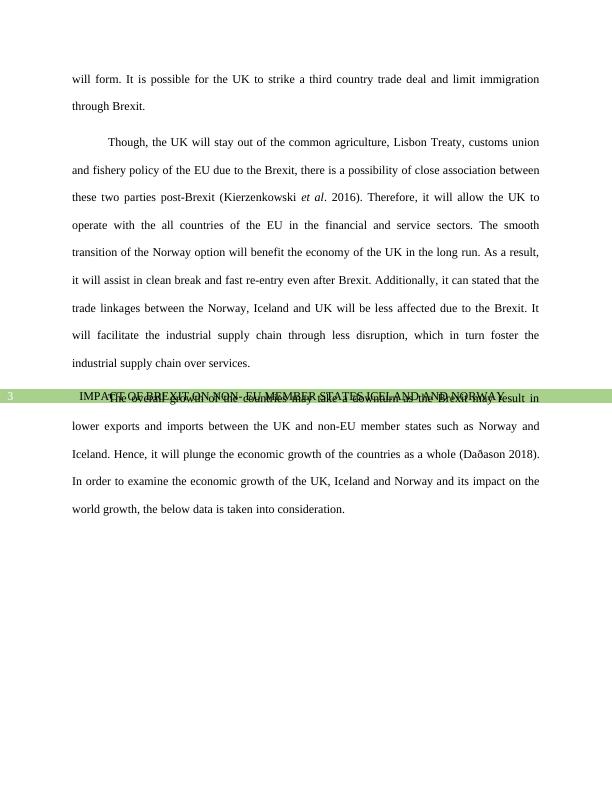IMPACT OF BREXIT ON NON- EU MEMBER STATES ICELAND AND NORWAY
Critically analyse the economic impact of 'Brexit' on the UK and one non-EU member state, including trade relations, FDI inflows and outflows.
14 Pages2999 Words16 Views
Added on 2022-09-09
IMPACT OF BREXIT ON NON- EU MEMBER STATES ICELAND AND NORWAY
Critically analyse the economic impact of 'Brexit' on the UK and one non-EU member state, including trade relations, FDI inflows and outflows.
Added on 2022-09-09
ShareRelated Documents
End of preview
Want to access all the pages? Upload your documents or become a member.
Economic Impact of Brexit on Non-eu Member State
|12
|2922
|9
International Strategic Management: Impact of Brexit on UK, Norway, and Iceland
|9
|2682
|32
MAF306 International Finance and Investment - Impact of BREXIT on UK & EU
|5
|1151
|179
International Finance & Investment: Assignment
|14
|2311
|211
The Impact Of The Brexit On The Economy
|9
|2790
|15
EU Law - The implication of the Withdrawal Treaty
|10
|2776
|18




